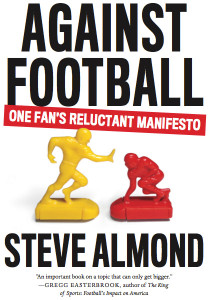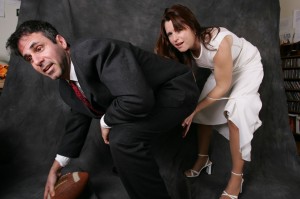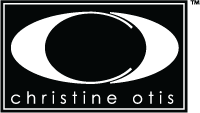 Steve Almond is the author of several books of fiction and non-fiction, most recently Against Football: One Fan’s Reluctant Manifesto, which critics are calling “perhaps the funniest and most pointless book ever written.” He is at work on a big dumb novel that you will never read, but you’ll enjoy it like so many of his other works: Candyfreak was a NY Times bestseller, his short stories have appeared in The Best American Short Stories, and the Pushcart Prize anthologies. His short story collection, God Bless America, won the Paterson Prize for fiction. He’s a journalist for The Boston Globe, and The New York Times Magazine.
Steve Almond is the author of several books of fiction and non-fiction, most recently Against Football: One Fan’s Reluctant Manifesto, which critics are calling “perhaps the funniest and most pointless book ever written.” He is at work on a big dumb novel that you will never read, but you’ll enjoy it like so many of his other works: Candyfreak was a NY Times bestseller, his short stories have appeared in The Best American Short Stories, and the Pushcart Prize anthologies. His short story collection, God Bless America, won the Paterson Prize for fiction. He’s a journalist for The Boston Globe, and The New York Times Magazine.
I interviewed Steve via email.
In an interview with Deirdre Sugiuchi, from Electric Lit, in reference to your latest book, Against Football, One Fan’s Reluctant Manifesto you stated: “I just want the book to spur a larger discussion…that also asks us to confront the false dream that football has sold us.”
In your God Bless America Stories, you also hit upon the false dream that Americans live. I’m thinking in particular the short story, “Not Until You Say Yes.”
What other false dreams do you feel Americans live, and have been sold, and will you write about this in your future work?
I think almost all human beings are living in some kind of false dream. If we didn’t, life would be unbearable. I mean, what’s the essential truth: that we’re all slowly dying. That most of us will fall short of our aspirations. That love will betray us, etc. I’m not trying to be a bummer. I’m merely suggesting that we need false dreams to get by, whether it’s football or gambling or bad love affairs or Hollywood schmaltz. My concerns about America, specifically, involve the huge and very real crises that we’re ignoring, which pose an existential threat to the species. You might say that our false dreams have displaced our grasp on reality. I’m sure I’ll keep writing about that. But hopefully with more mercy than scorn, and more doubt that assurance.
I’m not a fan of stories where the ending is kind of elliptical. I feel like the story should end but the feelings should linger and even haunt.
Have you ever thought about writing a novel about emotionally unfed Americans, and the disillusionment that comes from chasing things that don’t have meaning?
Absolutely. I just keep falling short. I’m working on one right now. It’s easy to envision and much, much harder to execute.
It’s your endings that grab me as a reader, so when you write your short stories, and larger works, do you know how your stories will end before you start writing them? If not, when do you know your ending, and how do you craft it?
Thanks for the kind words. I don’t necessarily know the endings to my stories. But I do know that I want them to make an impact. I’m not a fan of stories where the ending is kind of elliptical. I feel like the story should end but the feelings should linger and even haunt.
How do your ideas come to you? What’s your trigger?
It can be all sorts of things: a snatch of dialogue, a memory, a dream, a situation I witness. The only thing they have in common is that they stick in my craw. That’s how you know it’s something you should be working on, because your mind is fixed on it. For me, writing a story is a way of trying to work out these hidden dynamics. It’s the author pursuing curiosity on behalf of a hidden truth.
Most every day. But the kind of writing I do varies wildly. One day it might be just a novel, the next it might be just journalism, or an essay. I have no set plan. It’s just kind of a big mush. What I tell other writers is simple: to the extent that your patience and talent allows, you have a choice these days in how you want to put books in the world. So think carefully about what you really want out of the experience, then pursue that path.
What made you to decide to self-publish? Has it been a successful endeavor? What would you tell other writers about self-publishing?
I had these very personal idiosyncratic ideas for books and I wanted to put them into the world in a way that was more personal and idosyncratic. I wanted out of the arranged marriage that prevails with a big publisher. And I wanted to control the content, so they were precisely the books I envisioned, right down to the beautiful visual art, which my friend Brian Stauffer supplies. It’s been a delight for me. But I wouldn’t have done it ten years ago, or at the beginning of my career. It would have been vanity, not common sense. What I tell other writers is simple: to the extent that your patience and talent allows, you have a choice these days in how you want to put books in the world. So think carefully about what you really want out of the experience, then pursue that path.
Have you made more money self-publishing or though publishing houses? What are the pros and cons of each?
Oh, far more through traditional publishing. But my books don’t support me. I have to teach and do journalism to support my book-writing habit.
How have you learned to market yourself and your work?
I don’t think of it as marketing so much as trying to find readers who might dig my books. I do what I can. But I’m not a big believer in social media as a promotional tool, for instance. I think you should do the things you naturally enjoy and hope to find readers in that way – as organically as possible.
How did you manage going from a writer in small newspapers, to bigger venues like The Boston Globe, and the NY Times Magazine?
I don’t know. I’m not really a planner. I didn’t say: Now Steve, you really want to write for the New York Times Magazine. How are you going to make that happen? I really just try to write about the subjects that compel me. The idea is to uncouple artistic creation from financial expectation, to the extent you can.
You’re a journalist, as well as a short story writer. For you, does one come before the other?
If someone would pay me a liveable wage to write short stories, that’s what I’d do all day.
What do you like most about writing in those different formats, and are they really that different?
They’re quite different, and they each offer their own rewards. Short stories are imaginative endeavors. They reach deep into people’s minds and hearts. But it’s a much smaller audience. Journalism reaches more readers, but in a more glancing way. I’m happy for the chance to do both.
 How do you move your writing career forward from here? What are your plans and goals?
How do you move your writing career forward from here? What are your plans and goals?
I’m working on a novel, which is going quite slowly. I’m trying to raise three small kids and keep them clothed and be a good husband. That and teaching and journalism pretty much fills my days to brimming. My goals are pretty modest: keep it all going. Be good to those around me. Stay healthy. Pray for sun.
